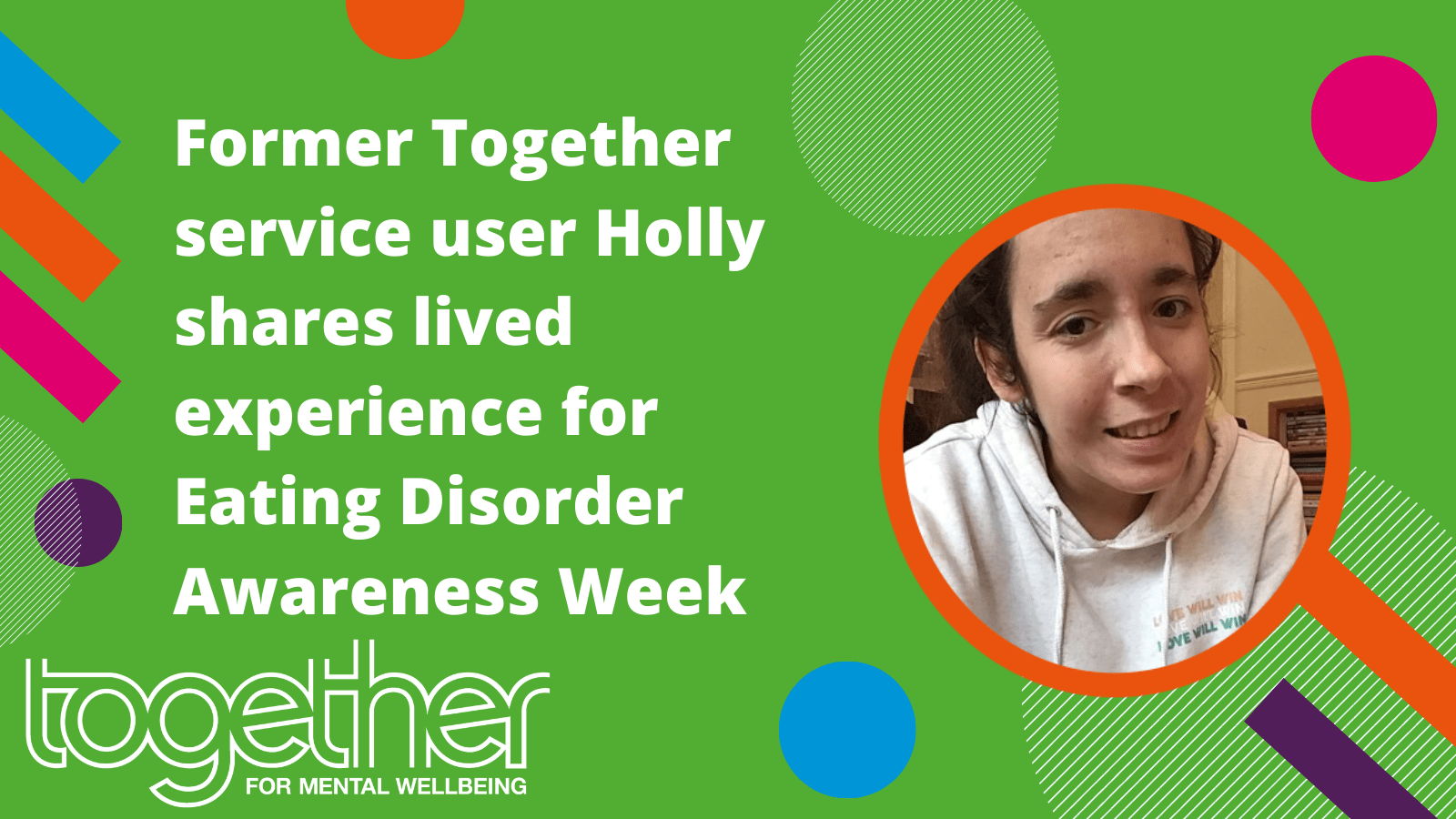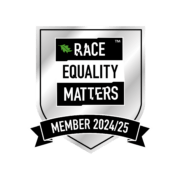Former Together service user Holly shares lived experience for Eating Disorder Awareness Week

There are different types of eating disorders including anorexia nervosa, bulimia and binge eating. They come in all shapes and sizes and may not look the same, meaning it can be difficult to identify when someone is suffering from an eating disorder and to establish how much they are struggling.
I have had times when I’ve been a certain weight and looked healthy and people have said to me “you don’t have an eating disorder” or “you don’t look anorexic”. That is a misconception I’ve come across, where people assume that people with eating disorders like anorexia have to be all skin and bones. I think that is truly based on media and people’s opinions. I myself have suffered from anorexia since I was in my mid teens and still suffer now. It’s not just about wanting to be thin, it’s about the control and wanting the weight to be as low as possible. It’s about feeling and thinking people would like me more if I was at a lower weight and about voices and body Image. Voices can control you and some sufferers like myself feel like anorexia is our only friend and that everyone else is wrong. That will then not allow me to listen to professionals, friends or family.
Anorexia has ruined my childhood and has taken away friends, family and my life. I may still be suffering but I am in recovery!
I feel eating disorders should be spoken about every day and not just in national awareness week as they have a higher mortality rate of death than other mental health conditions. Statistics show Anorexia has the highest mortality rate of any psychiatric disorder in adolescence while eating disorders generally have the highest mortality rate of among psychiatric disorders (source: https://www.priorygroup.com/eating-disorders/eating-disorder-statistics).
It is so important for people who are suffering in any way or have any issues around food, body image, weight or exercise to seek help early so they can get the right treatment as soon as possible. Help can come in various ways and from different professionals. Examples of professional people you can approach include your GP, the eating disorder charity Beat or other eating disorder services. People who are suffering should seek help from family and friends as well, if they can.
I moved into one of Together’s supported housing projects in 2016 at the age of 20 and was there for 1 and half years. I also used Togethers out reach service when I moved out of supported housing. Together has helped me hugely with my recovery and especially with my eating disorder. I received supported meals and supplements with staff each day and they encouraged me massively to have intake and dealt with my distress at meals.
Other services apart from Together were not sure what to do to help me with my eating disorder. With them I started receiving peer support and that helped a huge amount with my recovery. The peer supporter I worked alongside had suffered from an eating disorder themselves. This was the first time I had come across someone who truly understood. I am very thankful to the staff at the supported housing service and specifically to the peer supporter as otherwise I wouldn’t be where I am today with my recovery. I am nowhere near fully recovered from my eating disorder but I’m much further on because of Together.
Please seek help if you are suffering from an eating disorder. Or if you think someone else is suffering talk to them and remember to listen and be patient.
Holly
Huge thanks to Holly for sharing her lived experience and for more information on Eating Disorder Awareness Week organised by Beat and their #YouMightKnowMe campaign go to https://www.beateatingdisorders.org.uk/edaw



